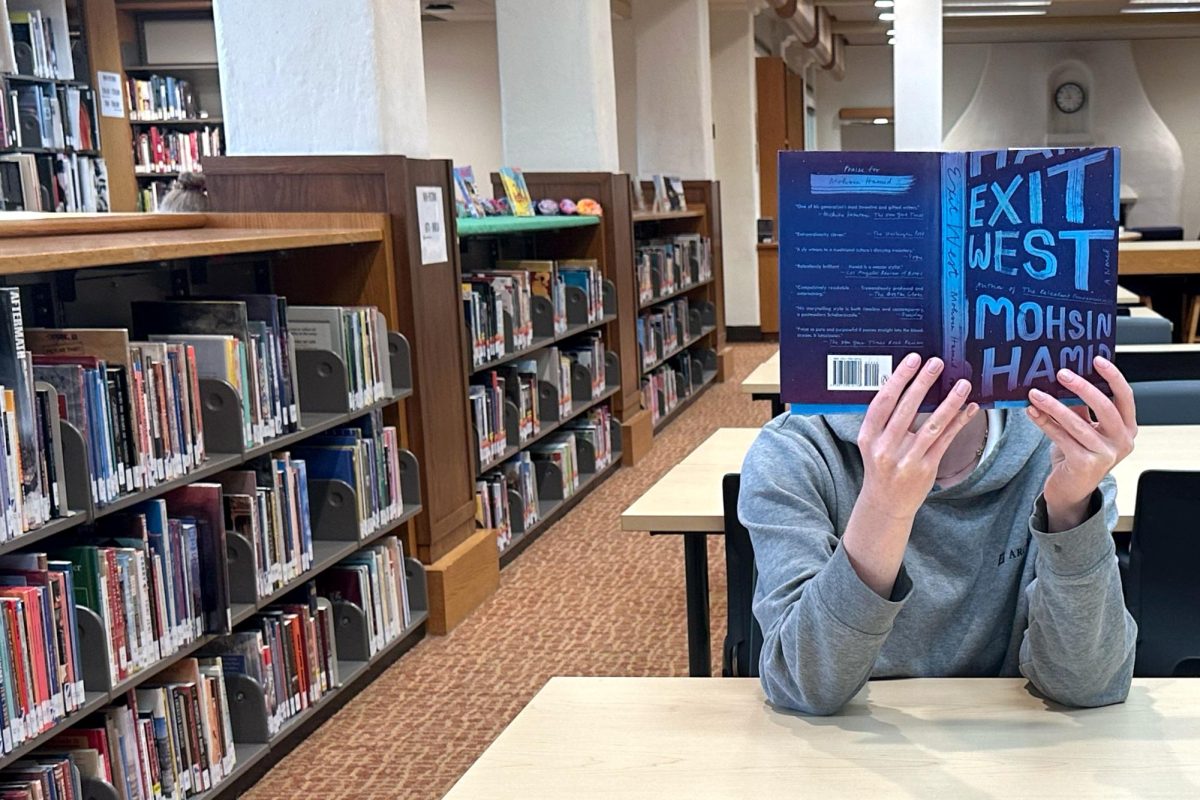I’ve always said the best books are the ones that make you temporarily forget about the real world. The books that cause you to become so deeply entrenched in each description and moment, that you suddenly realize it’s 11:39 p.m. on a school night, and you should probably return to your homework… only you can’t stop thinking about the characters and their unique stories. The pages are calling, asking to return you to their reality. These are the best books, and Moshin Hamid’s “Exit West” is no exception.
Published in 2017, “Exit West” is the story of two young refugees, Saeed and Nadia, who leave their (unidentified) home country during a civil war and journey to Greece, the United Kingdom and, finally, the United States. Nadia, a fearless and independent woman, meets Saeed, a more conservative and reserved man, in the book’s opening, and they begin a relationship. The first third of the novel focuses on their life before and during the war, beautifully chronicling how war changes everyday life in the simplest ways. The rest tells of their emigration and the struggles they face along the way.
The characters are raw and real, which enhances the overall reading experience. I’ve read a handful of refugee novels, but what sets “Exit West” apart is the way Hamid incorporates humanity. Saeed and Nadia are modern in their dialogue and actions, which brings the story to life and allows readers to empathize with them.
This is not to say historical texts don’t spark empathy — they do. But Hamid’s way of highlighting the beauty in everyday life makes the characters feel more relatable. For example, Nadia and Saeed scroll on their phones and enjoy take-out dinners. When they are viewed as outcasts by the rest of the world, the reader feels a certain connection to them.
I appreciated how digestible “Exit West” was, even when handling such heavy topics. The writing takes down the barrier between the fictional story and the reader. Hamid’s writing blended clarity with intricate descriptions and imagery so vivid you felt like you were in each moment. Oftentimes I wished for slower moments, as the text felt fairly fast-paced, yet the story as a whole came together harmoniously.
It’s nearly impossible to discuss “Exit West” without bringing up the well-placed and relevant magical realism of the doors. Many of my friends and parents’ friends have had mixed reviews of this element. I loved it. In the text, there is a set of doors that transport the displaced refugees from their native countries to new places. The fast-paced and descriptive nature of the novel does not make this magical element feel out of place. In fact, I believe it sets the novel apart from other refugee stories once more. While many texts focus on the journey and travel that refugees experience, Hamid omits these details from Nadia and Saeed’s journey. Instead, readers are given more background information, further humanizing the characters.
Nadia and Saeed’s story is far from my reality, but it brought up important lessons that I can take with me for my entire life. Though many readers might not ever know the feeling of leaving behind their family for good or fearing for their safety in their own home, “Exit West” inspires empathy – one of the greatest gifts that can come from writing.
-
Writing
-
Story
-
Characters
-
Enjoyment
Summary
“Exit West” is a novel about two refugees, Saeed and Nadia, who leave their home country and journey to Greece, the United Kingdom and, finally, the United States after a civil war breaks out. While Nadia and Saeed fall in love, they also endure the hardships of immigration together. The beginning of the novel depicts their life before and during the war, detailing how war changes everyday life in the simplest ways. The rest tells of their emigration and the struggles that they find along the way.










